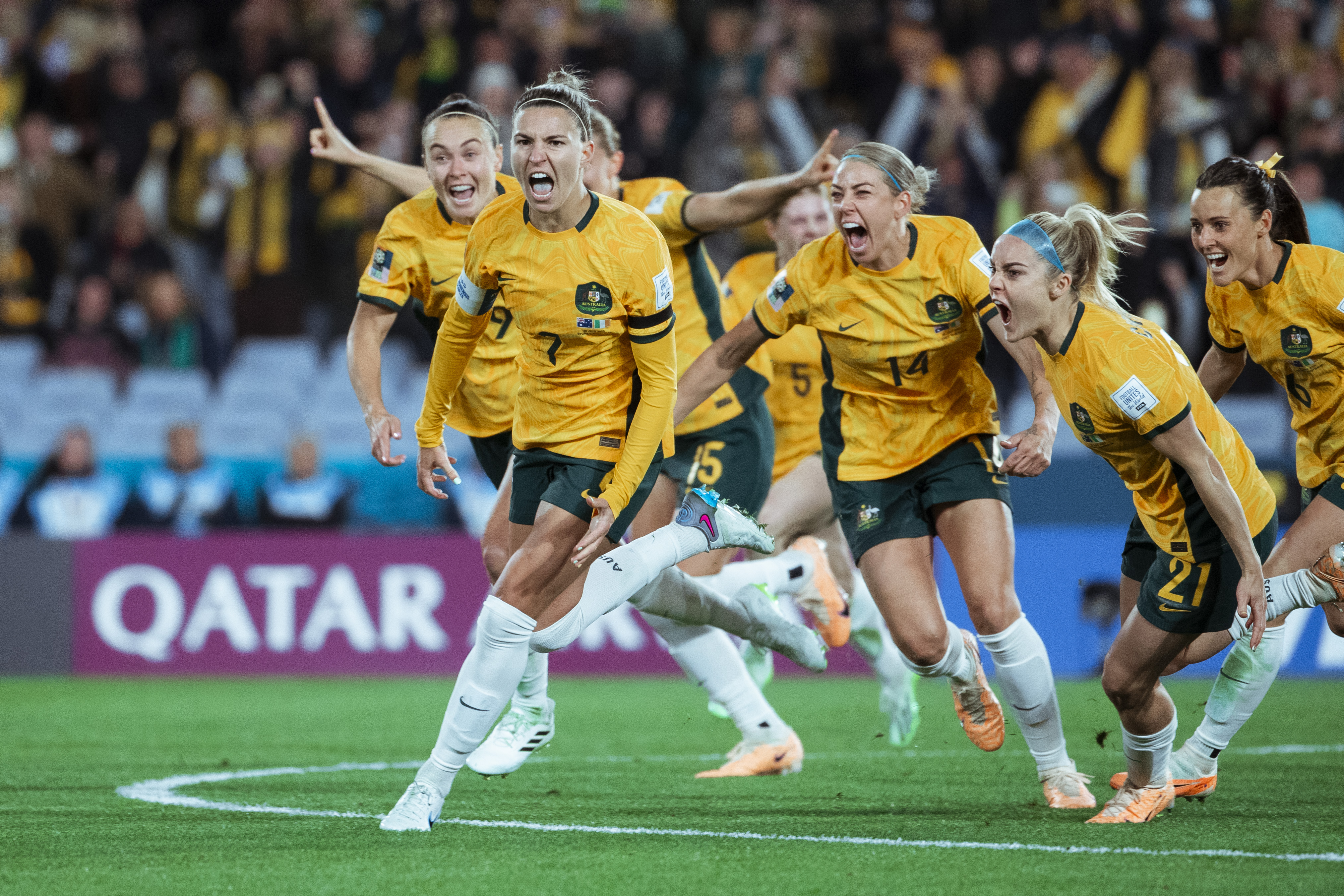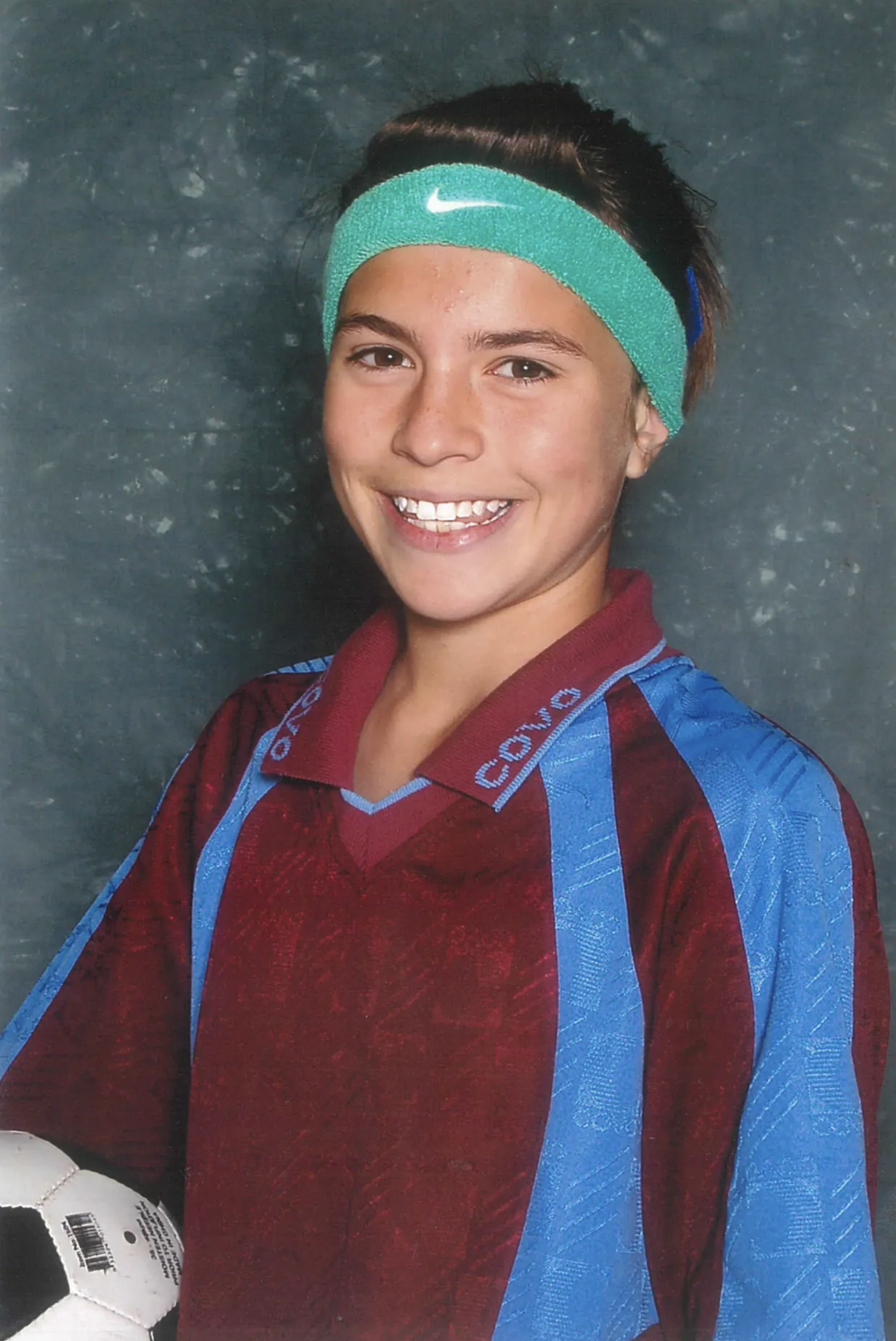23- Steph Catley: From dreams of playing in the men’s Premier League, to leaving an indelible legacy on the women’s game.
In the heart of the CommBank Matildas, vice-captain, Steph Catley, has seen a lot over her 11-year national team career, but the meteoric rise of women’s football is something not even she dared to dream.

From the lone six-year-old girl playing in a boys’ team at East Bentleigh Soccer Club, to now, selling out stadiums and playing in the biggest women’s league in the world, the Arsenal defender has played a pivotal part in elevating the women’s game to a place it’s never been.
“If you’d asked me even five years ago, if this would be the state of things, the way they are now, I would have said absolutely not,” the fan favourite said of whether she could’ve predicted the trajectory women’s football has gone on recently.
“Sold out games, commercial brands wanting to be involved with women’s football, with our team, the Matildas. Our faces are splattered everywhere. It does fill me with a lot of pride and excitement.”
Some of the most memorable moments of the FIFA Women’s World Cup 2023™ came from the No.7 herself who donned the captain’s armband throughout most of the tournament due to a calf injury to Sam Kerr.
In the CommBank Matildas’ opening match against Ireland, Catley coolly converted a penalty securing a 1-0 win for Australia and sending teammates and fans alike into raptures. She did the same again in the 93rd minute of the final group stage game, claiming a dominant 4-0 win against Olympic Champions, Canada, and booking Australia's spot in the Round of 16.

A win over Denmark in the Round of 16 sent the team to the quarter-final against France, with a spot in the semi-final on the line. The match ticked through extra time into a dramatic penalty shootout which the CommBank Matildas ultimately won 7-6. The team finished fourth overall in the tournament, a best-ever placing for any Australian football team.
Performing with the expectation of a nation on her shoulders, Catley’s North Star was and always will be, her family.
“The World Cup is the most important tournament a footballer can go to, it's everybody's dream, but the main focus for me was my family. I definitely wouldn't be where I am today without my mum,” Catley said.
“When I was younger, she did everything for me. In terms of my football, she bent over backward to make sure I could get to tournaments and to camps, even when she didn't have the time. She was working full-time and didn't have the money, but she still managed to get me there.
“Mum would fundraise with chocolates and do all sorts of things, like going around and asking people to sponsor me. I was just a 13-year-old football player who no one knew, but she believed in me from the start and that made me believe in myself,” she continued.
“I knew how much it meant to her and how much she was putting into it which spurred me on to make sure I was always doing my best.”
Although the CommBank Matildas didn’t raise the trophy, they would inspire a nation, but the team's impact isn’t limited to those outside of it.
Twenty-one-year-old Kyra Cooney-Cross, who has made huge strides and broken into the Women’s Super League herself, calls her Arsenal teammate, “one of the best in the world.”
“I think Steph is underrated because she’s a fullback,” Cooney-Cross said of the left-footed magician. “But she’s one of the best fullbacks in the world.”
After hearing those words from her teammate, a moved Catley expressed, “I wish I knew that earlier; it gave me goosebumps. You don't really have those conversations with the younger players.
“We grew up with no female athletes on TV, we didn't really know that was possible, so for us, as a team, we've always strived to be a powerful voice. To see the pathway we've forged for the younger players, makes you proud and it really makes you think that all the tough times, all the arguments and the things we had to go through to get here, were definitely worth it.
“When I think back to when I was younger and where I wanted to play in the future, it was all imagination,” Catley shared.
“I was wearing men's football shirts and pretending to play in men's Premier League teams in the front yard, because I didn't think it was possible for women to play for Arsenal or to represent my country at a home World Cup. Those were just things that never even crossed my mind because it wasn't accessible.

“Hearing that the younger girls on this team have had the opportunity to watch us and be inspired by us is pretty wonderful. It shows a lot about where women's football is going and it's in a much better place than when I first started.”
For those who have recently joined the Tillies fanbase, the team’s ascent may seem sudden, but Catley shared the deliberate planning and resilience behind the scenes.
“We did go through a period of time (pre-World Cup) inside the bubble, where we were very calm. We were very sure of our plan, we knew exactly why we were doing things, but the outside world was getting a little bit restless,” Catley explained.
“We had a lot of painful losses, but we were really clear on the plan in terms of resting players when we needed to rest them, trialing new players when we needed to, to try and create some more depth and I think we balanced that perfectly.
“The whole reason we did it, was to ensure we were peaking for the World Cup, that was the big picture plan,” she continued.
“It was a great thing for those players who needed a rest and a really good thing for the younger players, who got to step up and play in massive games and prove themselves.
“Now we've created this amazing depth we've never had before. You can look at different players and trust them in positions, where maybe we didn’t have that before.”
Catley spoke about the challenges and sacrifices they’ve all had to endure, to earn the recognition they receive today.
“This playing group is really special. We stand for a lot of things and pushed the game and our team forward,” she said.
“We went overseas at early ages and challenged ourselves, so that we could be the best possible footballers, and then we came back to our national team and put everything into it.
“I'm really proud to say, the girls I grew up with, the people they are now, they've changed in a lot of ways, but they also haven't, which I think is awesome. We've been through so much. But the relationships and the friendships remain the same.”
Catley’s story is one of barriers broken and dreams fulfilled for a little girl who dreamed of playing in the men’s Premier League, to trailblazing a path that would leave an indelible legacy for women’s football.
